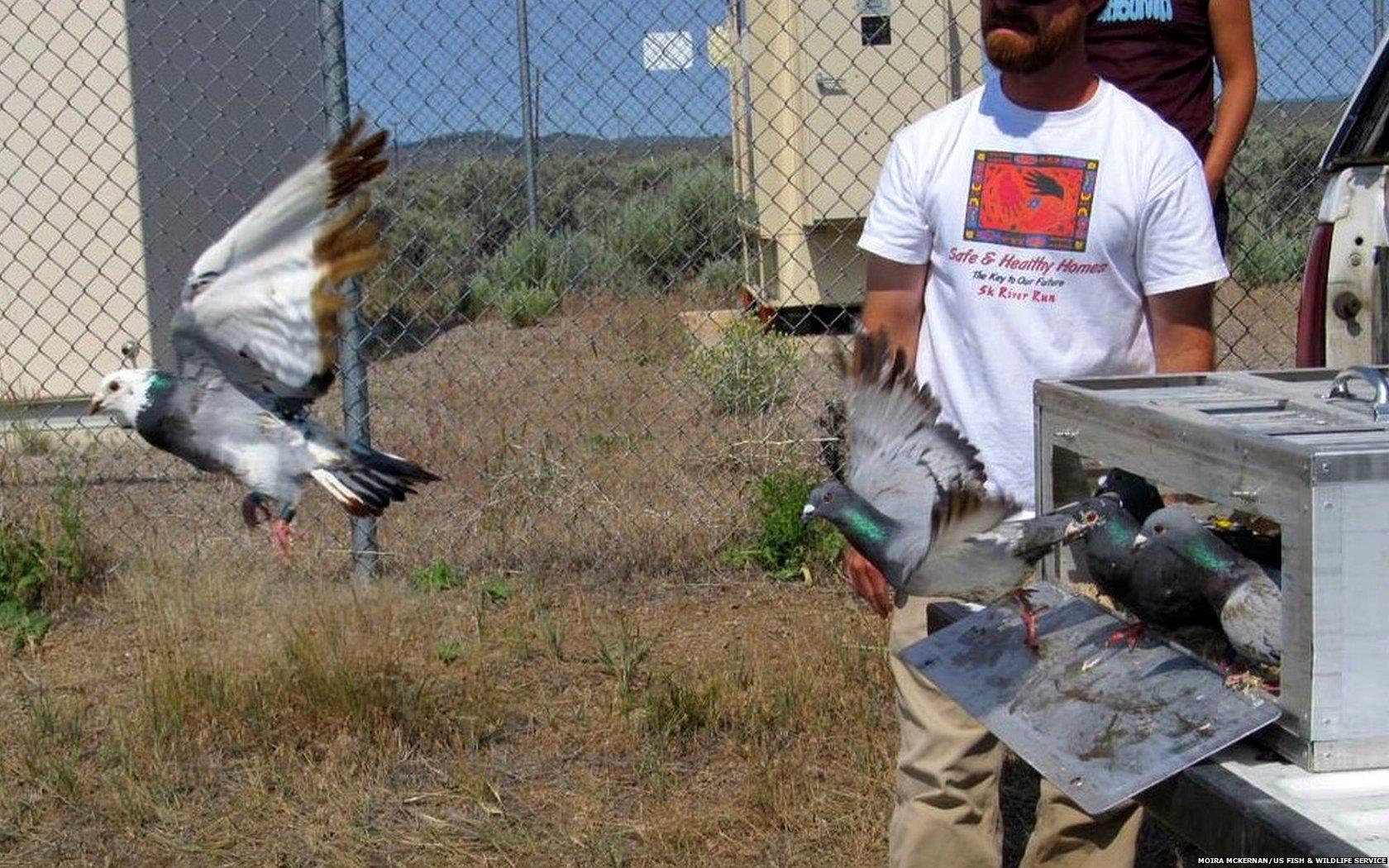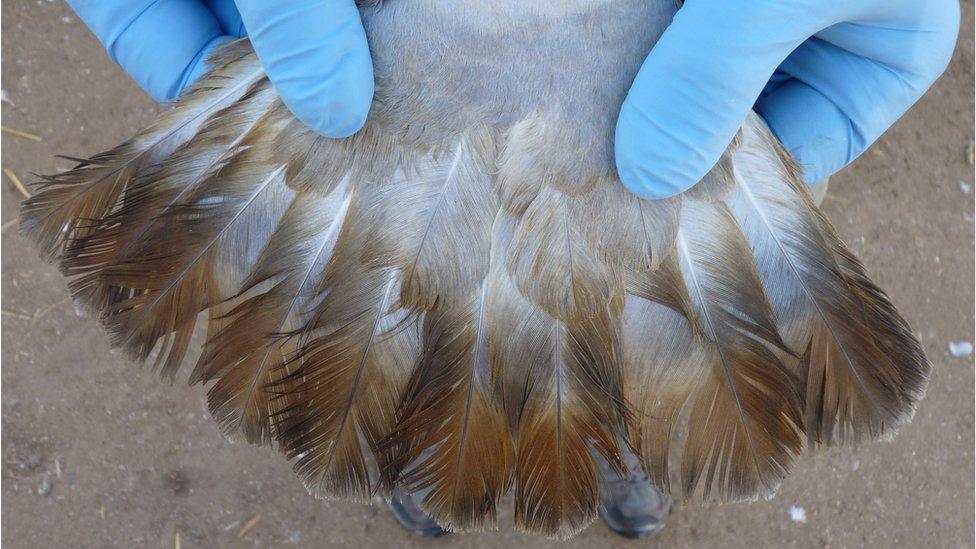Exposure to oil sends birds off course
- Published
- comments

Even light exposure to oil from disasters like the Deep Water Horizon oil spill makes flying more difficult for birds, a study has revealed.
US biologists used homing pigeons to test the potential impacts of oil spills on birds' flight.
"Lightly oiled" pigeons, they found, veered off course and took longer to return and longer to recover than birds with no oil on their feathers.
The results are published in the journal Environmental Pollution., external
It is the first time that the effects of low level exposure to crude oil on long-distance bird flight patterns have been tested and suggests that even small amounts of oil could have serious impacts on migrating birds that are caught up in a spill.
Changing course

Oil could affect breeding among migrant birds, the scientists say
The researchers were surprised by their findings, as lead author Dr Cristina Perez explained: "The general notion would be that these birds are 'fine', but in fact we found that even lightly oiled birds are not uninjured."
Dr Perez continued: "We expected that the birds would have difficulties with flight and be slower in their arrival, but we did not expect such an obvious flight path difference."
The study used crude oil collected from the Deepwater Horizon oil spill which was applied onto the wing and tail feathers of some of the homing pigeons with paintbrushes. This pattern of oiling reflected that seen in wild birds from the spill.
The pigeons were trained to repeatedly undertake flights of 161km between release points and their home loft, all the while carrying GPS data loggers. After release, most of the oiled birds took different flight courses which were longer in duration and distance than those of un-oiled birds.
Deep water
These longer flights, more than double the length of the un-oiled birds, avoided crossing lakes and made use of the updrafts from mountains. They chose to minimise the risk of overwater crossings and may have been using their knowledge of the environment to make the journey easier.
Such options would be unavailable for migrant water birds that had become oiled on their first migration. Young birds, with their pre-programmed flight plans would have no idea of the environmental barriers, such as long overwater flights, that they would meet on their onward migration.
Historically, the focus has been on understanding the impact on heavily oiled seabirds, but study co-author and project leader Prof Chris Pritsos stressed the importance of such work to understand the impact on lightly-oiled birds, which he pointed out "were observed oiled but still alive and functioning" after the Deep Water Horizon spill.
Prof Pritsos stressed that these sub-lethal effects could seriously impact subsequent breeding attempts by migrant birds caught up in the spill.
The team found that oiled pigeons failed to regain the body mass lost between flights, unlike the un-oiled birds. This is a bad sign for migrant birds as it suggests that they may not be able to refuel sufficiently on their migratory stopovers in order to continue their journeys. Oiled pigeons also delayed their journeys for longer than the un-oiled group; they even experienced physical difficulties in getting airborne.
Dr Perez indicated that a combination of GPS data loggers and free-flying homing pigeons could be "considered for testing the effects of other environmental contaminants" for the sort of detrimental impacts that "wouldn't be discovered in birds in a wind tunnel environment alone".
Water birds
Dr Kees Camphuysen, an expert on the impact of pollution on seabirds at the Royal Netherlands Institute of Sea Research, who was not involved on the study, remarked that it was "interesting that slightly oiled birds with only one task (fly home) were hindered and that the effect lasted fairly long".
Dr Camphuysen went on to stress that water birds are likely to be more badly affected by oiling than land birds like pigeons, as they will be unable to adequately clean their feathers when wet and matted at sea.
The Deepwater Horizon spillage of 134 million gallons of crude oil into the Gulf of Mexico started on 20 April 2010. It was the biggest environmental disaster in US history and is estimated to have killed over one million birds.
Dr Alexander Lees is a British Science Association media fellow at BBC Breakfast and a lecturer at Manchester Metropolitan University.